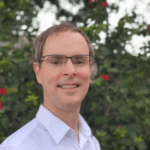Turning eighteen is a momentous milestone for many. Bestowed overnight with the badge of legal adulthood, the new-found freedom can be thrilling. But for those who have spent their lives in out-of-home care, the sudden shift can be a shock.
“Children and young people living in out-of-home care face challenges not generally confronted by their peers,” explains Curtin Professor Donna Chung.
“These children may live with family members, foster carers or in residential group homes and their lives often include the involvement of courts, child protection and other services.
“To further complicate matters, the possibility of developing strong friendships, networks and confidence at school are hampered by the number of ‘placements’ many of these young people experience, which can be profoundly destabilising.”
Chung says national and international research reveals that many of the impacted children and young people face significant disadvantage and marginalisation as they transition to adulthood.
“Traditionally, turning eighteen has marked the point at which these young people are expected to start living independently,” she says. “But today’s generation of young people tend to live at home with their parents until far later, often well after gaining full-time employment, in order to save for holidays, cars or houses.”
With this option not available to those in out-of-home care, she says the inequality in future outcomes becomes even more marked.
“The Australian Government has recognised the importance of providing assistance to young people beyond the age of eighteen, but there is uncertainty about how best to provide that support,” she says.
“In Western Australia the number of children in out-of-home care is also increasing, with Aboriginal children representing more than sixty per cent of the total number in care.”
These concerning figures prompted Chung to reach out to government and not-for-profit agencies for a solution.
“I asked for their commitment to collaborate on a large state-wide project to offer direction on policy and practice to improve outcomes for young people,” she explains.
The resultant project led by Chung involves multi-disciplinary researchers from Curtin, Monash University and the University of Western Australia.
“In order to make a difference, we were well aware our research had to be a collaboration with industry and the community and rely on a range of research expertise and methods,” she says.
“One strand of the project is an Aboriginal-led, place-based study that will involve young people, their families and the wider Aboriginal community,” she explains. “We want to address the unacceptably high rate of Aboriginal children in care. It will also ensure that plans for the future are developed by those directly impacted.”
The project has been awarded a four-year grant by the Australian Research Council.
“It’s a rare opportunity to work with industry and the community to gain a comprehensive understanding of people’s experiences and outcomes following out-of-home care in Western Australia,” says Chung.
Her aim is to arm decision makers with knowledge that can translate into change locally and overseas.
“We really hope to make a difference to a group of young people who are frequently overlooked and marginalised,” she says.
“These young people often live without the support and sense of belonging that the rest of the community takes for granted.”



